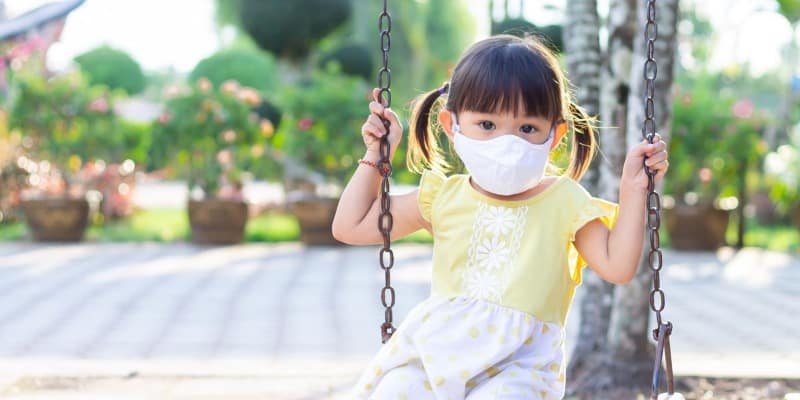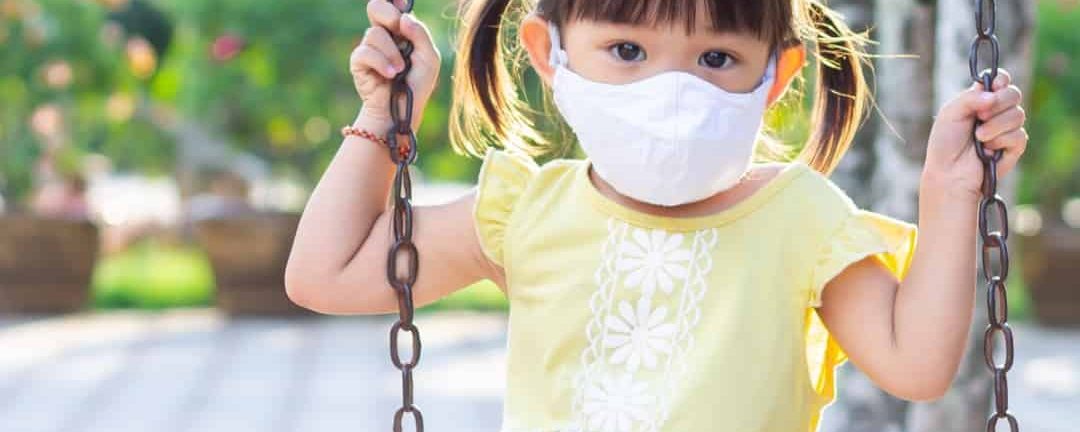
Affected by Covid-19 Pandemic Fatigue?
It’s been months of working from home, online classes and social distancing, yet Covid-19 is still maintaining its menacing grasp on the world. As parts of the world ease out of lockdown, case numbers surge. Why isn’t the situation improving? In this circumstance, how can you ensure that children remain vigilant – continuing the habit of washing their hands and keeping their masks on?
In our article today, we will look at a harmful matter known as pandemic fatigue.
What is it?
Pandemic fatigue occurs when people feel jaded or worn out by the recommended restrictions and precautions related to the pandemic. This leads them to ignore or abandon the rules they followed strictly in the past. The term was coined in the recent months as health experts notice that people around the world are becoming indifferent to the rules imposed. A lot of people are no longer cautious about social distancing. Some neglect washing their hands or wearing their masks, putting themselves and their loved ones at risk. Children who are witnessing this behaviour might end up questioning the rules put into place: Do I really need to follow them when so many aren’t?
Why is this happening?
Anthropologists have recently published a paper on a possible explanation to this phenomenon that is causing people to put in less effort into Covid-19 prevention. As we learn more about Covid-19, the idea of it becomes far less frightening. If the number of cases in a person’s area is low, it may lead to them believing that they will not catch it. This is known as perceived susceptibility (how likely you think you’ll get the disease). Some are also lulled into a false sense of security as we gain more information, believing that medical staff are able to cure them. As treatment methods improve, the perceived severity (how bad you think the disease will be if you get it) will reduce.
We are affected by social norms because of the behaviour of people around us. As the governments relax their restrictions, we will think that it is ‘safe’ to visit restaurants or go to the gym. If you see your family or friends forgoing their masks and ignoring physical distancing rules, you’re likely to feel that it’s a norm to do so as well. Children and teenagers may feel a greater unseen pressure to fit in if their friends flout the rules. They may be led to believe that they or their parents are overreacting. It looks normal for them to not wear masks and hang out, why not just join them?
Our desire to connect with others also hampers our ability to remain disciplined. Long-term isolation is stressful, especially for people who live alone or mothers who need a break from juggling working-from-home and looking after their homebound kids. People who long to connect with others will miss the times where they could just attend social gatherings without worry. Festive seasons will trigger their fun memories and nostalgia, leading them to focus on things they cannot do.
Primarily since the payoff is invisible, it’s hard for people to be strict with themselves as it is hard to remain motivated to do something they have never done before in the past. The reward of not getting Covid-19 may be obvious to some, but when placed under stress due to all the uncertainties, fear and loneliness, it would be difficult for everyone to keep a realistic perspective.
How do we combat it?
Experts have suggested a few methods to help you and your loved ones combat pandemic fatigue:
Remind yourself of the cost and effects. Verbally discussing what you and your loved ones are doing to prevent Covid-19 can help prevent a false sense of security. Mention why you are following the rules as a reminder. Praise rule followers so they receive acknowledgement for their efforts and encourage those who are less disciplined by helping them set clear goals such as ‘I will wash my hands after I come back home’.
Change perspectives. Whenever you or your loved ones feel unhappy because of the rules and restrictions imposed, try to think of it in a different perspective. Some children will say “I really miss my grandparents because I can’t visit them.” Teach them to say “I am keeping my grandparents safe by not visiting them because I love them.” as well. Allow them to express dissatisfaction, as these are important emotions to keep note of, but also help them think of the positives.
Focus on what has improved instead of what you cannot do. As year-end holidays are around the corner, many will feel left out and upset by the distancing they need to do. Try to look at what has improved instead, whether it is at home or in the world. Your child may miss going to school to meet their friends, but their performance in online class is improving. Little reminders like these will help prevent them from feeling negative.
Set an example. Remain vigilant about all the rules and restrictions. If people are easily influenced by others around them, why not be the good influence that you and your loved ones need? Stick with the rules. Eventually, all these extra actions of washing hands frequently or wearing an uncomfortable mask will become habits.
It’s draining to stay on high-alert for an extended period of time. By understanding what pandemic fatigue is and how to prevent it, you can strengthen your resolve to keep you and your loved ones safe.
Discussing tough topics with children can be challenging, especially when it comes to issues that are intangible, such as pandemic fatigue. Building their understanding and thinking skills is crucial. Our online enrichment programme, StarWorks, aims to help improve these skills. By reading the award-winning British National Young Readers’ Newspaper, First News, students get to discuss and express their opinions about current events and concepts. They get to pick up new perspectives and improve their critical thinking and communication. They’ll understand tougher topics better, and learn to ask the questions necessary to help them understand and voice their opinions about topics such as pandemic fatigue. Register for StarWorks this holiday!








